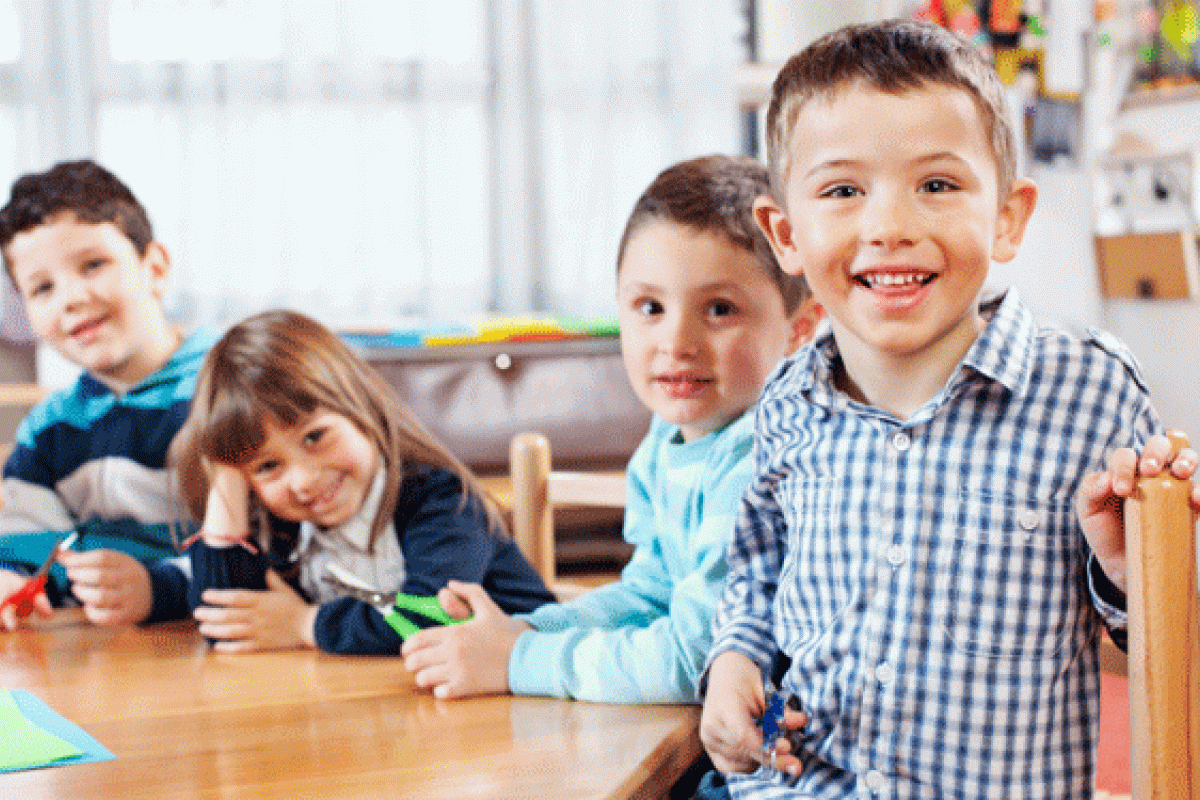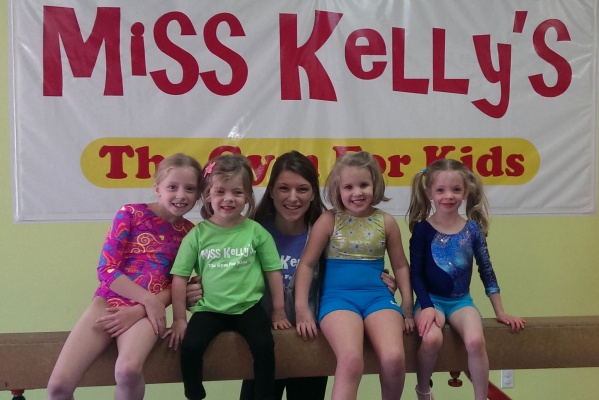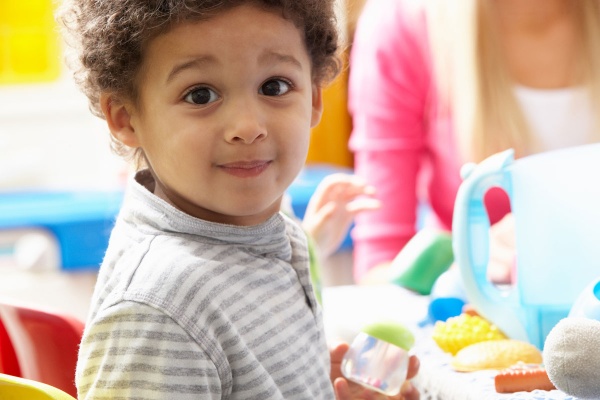

Ready, Set, Kindergarten! 17 Tips for Not-So-Ready Parents
Sending your baby off to kindergarten, whether it’s your first or fifth, is a momentous occasion for any parent. For many of us, it is also a nerve wracking one. Parents – and let’s be honest, usually moms – worry A LOT. It’s practically part of the job description.
While there’s no magic bullet that can ensure an easy transition into the kindergarten classroom, knowledge is – as always – power. If you’re gearing up to send your little one off to elementary school for the first time this August, the following tips (compiled with the help of current and former kindergarten teachers, as well as local moms who have been down this road before) may offer you some peace of mind.
1. Know before you go. The more information you can gather before that first day, the better. Take advantage of Meet the Teacher Nights, where you and your child can see the classroom, tour the school and, in many instances, drop off supplies. If you have questions, don’t be shy; this is the time to ask.
2. Ensure that your child knows the basics. Kindergarten today is more academically focused than it used to be, and most schools expect incoming kindergarteners to know at least some basic information. Ideally, your child should be able to:
- Print his or her first name (bonus points for last name too)
- Recognize some or most letters of the alphabet
- Know his or her address and telephone number
3. Don’t send a child who can’t tie to school in shoes with shoelaces. With 20-30 students in a classroom, teachers just do not have time to help kids tie their shoes. Teach your child to tie (there are some great tips here), buy shoes with Velcro or consider investing in a pair of Lock Laces.
4. Read. And then read some more. In addition to building vocabulary and improving listening skills (as well as a whole host of other benefits), reading provides a safe way for kids to explore their fears about those first few days. Miss Bindergarten Gets Ready for Kindergarten and The Kissing Hand both come highly recommended by teachers, or choose from this list of 10 Books Perfect for New Kindergarteners.
5. Label everything. We all know that kids lose things, so be sure to label ALL of your child’s personal possessions. Use a permanent marker, or get fancy with these stylish Mabel’s Labels.
6. Let them ride the bus on the first day. But don’t be afraid to hop in your car and follow that bus to school. You won’t be the only parent who does.
7. Remember that kids take their cues from us. If you’re the type that gets emotional, that first day is probably going to be a tearjerker for you. And while it’s normal to cry, maintain some composure if you can. Whatever you do, don’t be that parent – you know, the one who keeps peering through the window and has to be kindly escorted off the premises.
8. Make sure your child can open any containers you pack in her lunch.This is an important one, and something that many first-time parents don’t think about. School lunches are notoriously short, so kids just don’t have time to spend waiting for help from a busy lunch monitor. (And speaking of school lunches, if you aren’t sure what to pack, this School Lunch Roundup has lots of ideas – and includes pictures).
9. Know how (and when) to contact the teacher. Communicating openly and honestly with your child’s teacher is one of the best ways to ensure a successful school year. Find out if the teacher prefers to be contacted by phone or email, and be understanding when you don’t receive an immediate response. Most often, it’s because he or she is busy educating your child.
10. Get involved at school. “If there is a PTO, join,” says local mom Jessica McLard. “You really meet a lot of the parents, most of them that have been there a while.” Even if you can’t make time for PTO, try to attend class parties or volunteer in the classroom occasionally. Teachers appreciate the help, and you can’t beat the opportunity to see firsthand how the school functions on a daily basis.
11. Keep a class list at home. This is a great way to help your child – and you – quickly learn the names of his new friends.
12. Ask (specific) questions. Want to know details about your child’s day? DON’T ask “How was your day?” (Because the only answer you’re going to get is “fine.” I have a fifth grader. Trust me.) Instead, when your child gets home, ask questions that will elicit more specific answers. For example:
- “Who did you sit by at lunch?”
- “Tell me about a story your teacher read today.”
13. Remind them that you’re thinking about them. If your child is nervous, try sending a special family photo in his backpack, or a creative note in his lunchbox to remind him of home.
14. Have a snack and drink ready at the end of the day. Even kids who adjust to school well are likely to “crash” upon returning home. While you can’t always prevent this, an immediate after-school snack can help.
15. Prepare for the paperwork. If you think preschool produced a lot of papers, just wait. Think now about how you plan to organize permission slips and homework, and display all of the inevitable artwork. (Pro tip: Don’t be afraid to throw some of that artwork away. This does not make you a bad parent; it is simply a survival strategy).
16. Do something special for YOU on that first day. Get a pedicure. Treat yourself to lunch with friends. Even if you have to work or still have younger children at home to care for, find some small way to celebrate. The first day of kindergarten is a big day for you too.
17. Don’t forget to enjoy the experience. “Once you get the first few weeks under your belt, you will be shocked at how grown up your ‘babies’ get,” says Lesley DesRoche, a St. Louis mom whose daughter completed kindergarten last year. “It’s an awesome experience!! Try not to stress so much or you’ll miss out on the fun!”
For most parents, the hardest part of kindergarten is simply learning to let go. Advocate for your child, always, but also remember that you will never get a full picture of what takes place while he or she is in the classroom. In fact, some of the best advice comes from kindergarten teacher Mary A., who likes to tell parents that “if you believe half of what comes home, I’ll believe half of what comes to school.”
And considering the potential stories my own soon-to-kindergartner might tell? That sounds like a pretty sweet deal to me.

Alyssa Chirco is a freelance writer, mother and margarita lover, not necessarily in that order. In addition to writing for STL Parent, she is Contributing Editor at Parenting Squad, and covers parenting, health and lifestyle topics for publications across the country. She recently moved from the suburbs of St. Louis to a small town in rural Jefferson County, where she is learning to survive with no Target or Starbucks in sight. Follow her on Twitter @AlyssaChirco





















